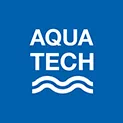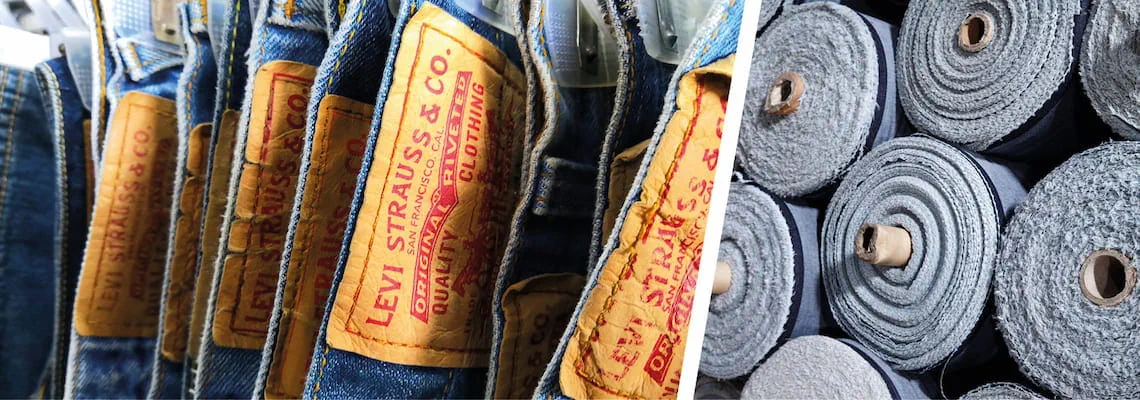Tackling water use in denim
A timeless fashion item, denim wear is an incredibly water intensive product. According to 2010 figures from the UN, a single pair of denim jeans consumes some 10,000 litres of water.
However, things have improved and the figure now is around 8,000 litres per pair of jeans, according to recent figures from WaterFootprint.org (The Hidden Water in Everyday Products, 2017).
This still represents significant consumption given more than 4.5 billion pairs of jeans were reportedly produced worldwide in 2018.
Indeed, from growing cotton to wet textile processes like washing and dyeing, the global cotton industry is estimated to use around 222 billion cubic metres of water every year.

Recognising the water impact of its products, leading denim wear manufacturers are turning to technology in a bid to reduce water usage.
Sustainability is rapidly becoming a key factor in consumer buying choices. From carbon emissions to ethical supply chains, corporate social responsibility is now a headline consideration for every responsible consumer-facing business.
For the manufacturers of jeans and denim wear, their sustainability credentials are now a key part of their marketing message.
A renewed sustainability target
Premium denim brand Wrangler has declared its intention to reduce water consumption by 50 per cent by 2030.
Targeting fibre production, fabric construction, and the product finishing phases of the supply chain, the move will address more than 90 per cent of the water use areas across the company.
In a statement Tom Waldron, EVP and global brand president of Wrangler, said: "Our new water goal is ambitious and necessary. New technologies and practices will empower Wrangler to make progress and advance the industry."
Roian Atwood, senior director, global sustainable business added: "A renewed sustainability target creates an organisational focus that enables Wrangler to create meaningful change through the conservation of water resources.”
He added: “Because water is a shared resource, its conservation is also a shared responsibility.”
A comprehensive water balance study
Owned by Kontoor Brands, Wrangler has also partnered with the Transformers Foundation to complete a comprehensive water balance study. This study will address the inconsistency of water usage data in the denim supply chain globally and aims to provide reliable industry average benchmarks.
The clarity and transparency of data is key to addressing supply chain water use and Wrangler says it will make this data publicly available.
Indeed, a lack of disclosure and transparency has been highlighted in a recent report from the Carbon Disclosure Project (CDP). Interwoven risks, untapped opportunities: the business case for tackling water pollution in apparel and textile value chains, argues that transparency and disclosure regarding water security are low among companies in the apparel and textile sector.
"Last year, more than half of textile companies failed to report crucial water-related information."
According to CDP, last year more than half (54 per cent) of apparel and textile companies including brands, manufacturers and retailers, failed to report crucial water-related information when requested to do so by investors or purchasers.
The report adds that only 21 per cent of the largest 100 apparel and textile companies reported their water-related data through the CDP.
These findings are perhaps surprising given that more than a fifth of disclosing companies report that water pollution has the potential to pose a substantive financial or strategic risk to their business, particularly in manufacturing.
Nonetheless, just 23 per cent of the companies that responded to CDP reveal their water pollution-related targets or goals and only six per cent monitor and report progress against these targets, says CDP.
Turning to technology
"The brand’s manufacturing facility in Mexico regularly recycles up to 85 per cent of its water."
The brand’s manufacturing facility in Torreon, Mexico regularly recycles up to 85 per cent of its water through sequential batch reactors, micro-filtration and reverse osmosis.
At the brand’s other manufacturing campuses, efficiencies such as merging or removing finishing steps and enhanced enzyme technologies were also able to reduce water use without compromising quality.
Levi’s plan to become Water<Less

Levi says it will also help its key suppliers, which represent 80 per cent of its total product volume, become water <Less® facilities by 2025.
First launched in 2011, the water <Less scheme includes a raft of water-saving measures and also sets local site-specific sustainability targets depending on how water stressed a region is.
According to the company, the scheme has helped them save some three billion litres of water so far. They further argue that the open-source processes could save the apparel industry at least 50 billion litres of water by the end of the year.
Levi says its Water<Less™ process can reduce up to 96 per cent of the water typically used in denim finishing. It aims to make 80 per cent of its products through these processes by the end of this year.
The problem with fast fashion
Some smaller premium brands have taken things even further.
The Everlane jean brand manufactures its products at its Saitex factory where the company claims a unique washing and filtration process recycles 98 per cent of all water used. The recycling cuts water use for finishing a pair of jeans to just 0.4 litres each.
"The open-source processes could save the apparel industry at least 50 billion litres of water by the end of the year."
Miguel Sanchez is on the board of directors for denim supply chain body, the Transformers Foundation.
He says: “Premium denim brands are doing their best to reduce water consumption. The real problem with denim is fast fashion. If more people only bought Levis, Wrangler, G-Star or other brands, then denim would not be a problem because the number of garments being produced would be relatively small, only two or three pairs per person a year.
"A pair of quality and rationally produced jeans will never be available at the lowest prices, but in exchange, they offer something that is built into the garment which is less wasted water, less wasted energy, less carbon and an ethical supply chain," he says.
Increasing pressure to reduce water impact
Sanchez continues: “However, because of the compulsive shopping style promoted by the mass fashion industry people are buying much more than they need and much more than they should and this is a big problem.”
Looking forward, it is clear that investors, regulators, customers and consumers are increasing pressure on denim wear companies to reduce their water impact. As CDP observes, companies that act quickly will gain a competitive advantage.
Sanchez concludes that a big part of the solution rests not with manufacturers but consumers: “The idea is not to buy more, but buy more responsibly.”







